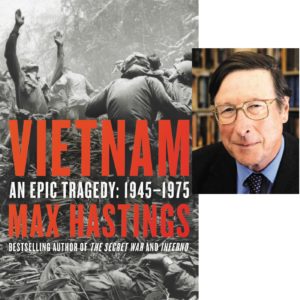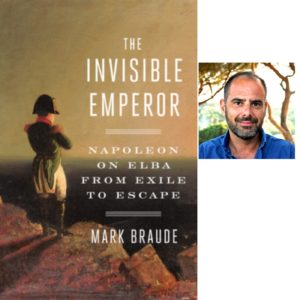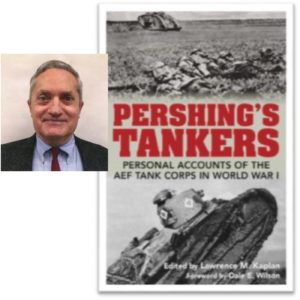Podcast: Play in new window | Download
Subscribe: RSS

Sir Max Hastings reported on the Vietnam War early in his prolific career as a journalist. He’s been a BBC correspondent, editor-in-chief of The Daily Telegraph, and editor of The Evening Standard. He’s written numerous books on military matters and has won numerous awards. We spoke about his most recent book on the Vietnam War.
1:01 – Sir Max explains how he got into writing on the Vietnam War. When he first reported on the war he didn’t think he’d end up writing a book on the war.
4:30 – Sir Max wants to make sure that readers understand the atrocities that the North Vietnam was inflicting on people that were hidden from view during the war.
6:39 – Sir Max discusses the problems with South Vietnam leadership.
9:00 – Sir Max talks about how Ho Chi Minh was able to control the situation in Vietnam. He also talks about the mistakes the French made in Vietnam.
12:43 – Sir Max talks about what he chose to tell in this 30 year story. He talks about he drove around the US to interview people who had been in the war, both veterans and Vietnamese.
15:01 – Sir Max talks about interviewing former Air Force navigator and Vietnam POW Norm McDaniel. He also discusses the touching reminisces of a nurse who was in Vietnam.
18:02 – Sir Max talks about the main themes of the book. He believes in the use of force to protect national interest but cultural and social links are needed between the US and the place they are operating in.
20:33 – Sir Max talked to retired Marine General Walt Boomer who provided Sir Max with important thoughts on Vietnam.
22:44 – Sir Max talks about the problems with sustaining public support for the Vietnam War.
24:42 – Sir Max compares British support for the Falklands Islands War to American support for Vietnam.
27:24 – Sir Max talks about the research he did. He used the Marine Corps and the Army historical archives. He also consulted with a retired CIA officer and Vietnamese linguist who has been translating Vietnamese documents, North and South, on the war for decades. Sir Max talks about Vietnamese information he got on a disastrous Marine battle at Di-do. He also came across a North Vietnam novel which was a thinly veiled history of the war from the North Vietnamese side.
31:38 – Sir Max has included material on what was going on in North Vietnam too. All the North Vietnamese thought about was food since they had so many problems with getting it.
33:10 – Sir Max also interviewed Doug Ramsey who was a Vietnam POW for seven years. Despite the ordeal, Doug had a couple of amusing anecdotes about his time.
35:14 – His favorite part of the research was talking to people.
36:48 – Sir Max talks about an interview he did with a former corpsman who often goes to the Vietnam War memorial in Washington, DC.
40:18 – Sir Max mentions having a good interpreter in Hanoi when he did research there.
42:24 – Sir Max mentions a sobering talk with a Holocaust victim.
45:00 – The Chinese and Soviets wanted out of Vietnam almost as much as the US did.
46:53 – Both North and South Vietnam became police states.
49:22 – Sir Max talks about how the media was handled during the war.
50:27 – Sir Max talks about the time he saw a dead soldier’s guts spilling out and how it affected him.
55:23 – Sir Max talks about the Troubles in Ireland which he covered extensively as a journalist. He mentions how US troops had not been taught street fighting even though they ended up having to do it.
1:02:45 – Sir Max had help from a Russian translator who helped with getting information on Russian air defense units in Vietnam.
For more “Military History Inside Out” please follow me on Facebook at warscholar, on twitter at Warscholar, on youtube at warscholar1945 and on Instagram @crisalvarezswarscholar
Guests: Sir Max Hugh Macdonald Hastings
Host: Cris Alvarez
Tags: military, history, military history, conflict, war, interview, non-fiction book, vietnam war, ho chi minh, france, United States, Irleand, the Troubles, POWs

 Mark Braude is a historian whose specialty is French history. He’s written a new book on Napoleon Bonaparte’s time on Elba and we discussed the book.
Mark Braude is a historian whose specialty is French history. He’s written a new book on Napoleon Bonaparte’s time on Elba and we discussed the book. Lawrence Kaplan is a military historian who has worked for the US Army and has written numerous books on the subject. Today we spoke about his latest book on the American tank corps during WWI.
Lawrence Kaplan is a military historian who has worked for the US Army and has written numerous books on the subject. Today we spoke about his latest book on the American tank corps during WWI.